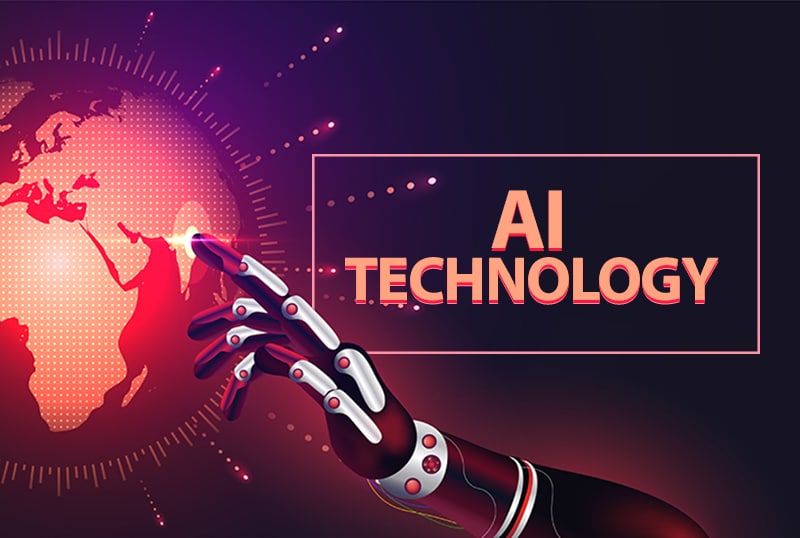The adoption of advanced technologies such as Artificial Intelligence (AI) and Data Science has brought significant changes to the healthcare industry. Reports suggest that physicians tend to devote about 62 percent of their valuable time per patient reviewing electronic health records (EHRs), with the most amount of time being spent on clinical data review. With a huge amount of data being stored in EHRs, users could experience a type of information overload. In order to improve efficiency, artificial intelligence systems are being used that assist physicians in reviewing patient information. By incorporating artificial intelligence technology to work with these EHRs, physicians can avoid burnout and improve the patient experience. AI in EHRs (Electronic Health Records) is mainly applied for the improvement of data discovery, extraction, and personalized recommendations for treatments. Partnering with a business process outsourcing company is the best way to implement innovative AI technologies that can take healthcare businesses to the next level.
Several advancements in medical imaging and the proliferation of clinical diagnostics and screenings generate large volumes of data on patient health. However, the main challenge with EHRs for large, integrated healthcare delivery systems is that they may prove to be inflexible, difficult to use and costly to configure. In addition, data regarding patient care procedures, patients, administrative processes, etc. also cannot be captured efficiently by EHRs. There are limited options to bridge this gap between systems and procedures. Designing a streamlined EHR system can help in this regard as they better fit into the workflows. The development of such integrated systems is often a time-consuming task. In such scenarios, open-source EHRs provide some break as the software is available for free. Even though the software is free, providing customized EHR systems will require a good amount of programming and infrastructure. In addition, these open-source systems are incautiously maintained as the systems are majorly designed for small medical practices.
Importance of Artificial Intelligence (AI) in EHR
The unique features of machine learning and natural language processing (NLP) can help record the unique medical experiences of patients, search the large EHR data banks for important documents, gauge patient satisfaction, etc. The machine learning models combined with NLP can help healthcare providers in transcribing the speech from the voice recognition system into text. The algorithms can be trained to deal with huge amounts of patient data related to the treatment, equipment used for treatment, respective doctor consulted etc. Further, this data can be segmented based upon the individual patient, illness, treatment for illness, etc. This will enhance the document and information search from the large databases.
Key Applications of AI in EHR Systems
Here are some key applications of artificial intelligence (AI) in EHR systems:-
- Extraction of Data– Healthcare providers can extract patient data from various sources such as clinical data, provider notes, fax etc. by leveraging AI and recognizing key terms that reveal actionable insights.
- Clinical Documentation– It is estimated that physicians spend approximately one-third of their time creating notes and reviewing medical records in the electronic health record (EHR). This may be related to bolstering ongoing care to help patients achieve positive health outcomes (for example, ensuring continuity of care for the patient between venues). In fact, this comes at a significant cost. As payment models become more complex, physicians are seeking ways to improve clinical documentation. The role of AI arises at this point. This is particularly true for the patient-physician encounter during the clinical validation or data reviews conducted for reimbursement, research and quality improvement. Healthcare companies leverage AI to develop NLP-powered tools that can be integrated with the EHRs to capture data from the clinical notes, thereby allowing physicians to focus more on their patients and the treatments.
- Predictive Analytics– Predictive models from Big Data will help alert the physicians of potentially deadly diseases. In addition, AI technology can power up medical image interpretation algorithms that could be further integrated into the EHRs and provide decision support and treatment strategies.
- Clinical Decision Support– Decisions regarding further treatment procedures and options are usually generic in nature. With AI technology incorporated into the systems, more machine learning solutions that enable personalized care are emerging. AI-based clinical decision support systems have the ability to analyze a huge volume of data and suggest further steps for treatments, indicate potential problems, enhance efficiency, and facilitate the work of healthcare providers. It can also leverage the information collected from patients’ health data. Incorporating AI- based technology in EHR is important for two reasons. Firstly, the huge amount of clinical data available can be obtained in real-time from medical devices and records. Secondly, this vast amount of data can be quickly and efficiently analyzed and optimally used.
EHRs act as a life raft during an emergency by offering the complete medical history of the patient. As the information is stored electronically, it can be used by healthcare providers to access patient data from any location. When artificial intelligence is integrated into the healthcare system, physicians can use it as a tool to provide better and more efficient patient care. Not only does it improve productivity, but can also lighten the load for physicians. This helps improve communication between physicians and patients, thereby improving patient care. By implementing AI into EHR systems, healthcare institutions can significantly improve operational efficiency and productivity. Experienced providers of business process outsourcing solutions can ensure the accuracy of healthcare processes and patient data.
Wondering how to manage huge volumes of data? We can help you with bulk data management.




